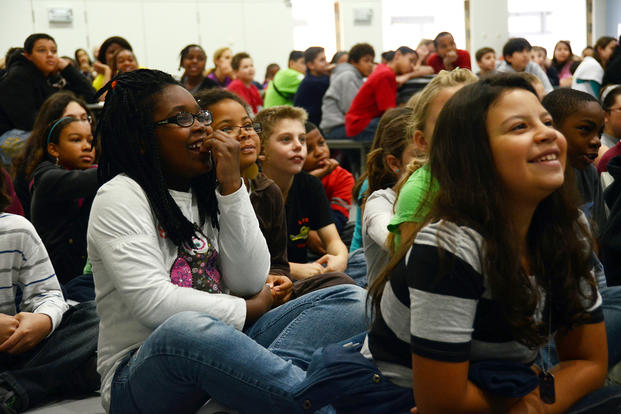It started with a call from the school. They reported "aggressive behavior towards another child." Then came another call. This time, "an outburst involving slamming a chair." This could not be our child, certainly — not the girl who had repeatedly been referred to as "ideal." Yet, here we were.
My husband had been diagnosed with PTSD. Our family was going through a horrid metamorphosis. Our child was hurting and angry, and was unable to put her feelings into words. Was this so unexpected? Her father had withdrawn, her mother was lost in her own confusion, and a six-year-old was screaming for attention amidst chaos. It grieved me, and yet, I could not reach her. Desperate, I researched every avenue to help our daughter.
We eventually got her into counseling through the school. Finally, she found a trusted adult to share with. She started a journal to focus frustration and anger. She began caring for a pony and learning how to love the animal unconditionally. We eventually breached the barrier. She cried, and I cried. We all slowly made it through this transition and found a new family dynamic that worked.
PTSD, Military Life, and Deployment
The life of a military child includes sacrifice, whether a parent has PTSD or not. He or she gives up time for a parent's training and deployments. That parent misses moments (important and routine) in the child's life. He or she moves a lot and faces frequent change. Parental roles may shift when a parent is home and then has to deploy.
Many children thrive in the military culture. Constant change brings new experiences and adventures. Others, however may experience depression and have difficulty adapting. Add a parent who is struggling with posttraumatic stress, and the child may struggle and have no idea how to voice their own pain or confusion.
Research shows signs of maladaptive behavior in various ages for children of a parent of PTSD. Very young children may regress in development. Regression includes behaviors such as wetting after mastering potty training.
Elementary School-Aged
Elementary age children may imitate the behavior of the parent with PTSD or may attempt to take on an adult role. They may act too grown up for their age, attempting to handle the problems at home themselves or feel responsible to care for their parents. Lastly, they may exhibit anxiety, sadness, and show agression with peers or have behavioral issues in school.
Teenagers
Teens have been shown to exhibit the same symptoms as children but tend to act out with more aggressive behavior. And, because they have more access to negative ways to cope, the consequences may be greater, such as reckless driving, alcohol and drug abuse, and acting out sexually.
The Good News
Fortunately, there are ways to successfully overcome these challenges. Research encourages parents to have open conversations about what is happening with the family. Without using examples about the specifics of the trauma, explain why the parent may be struggling and reiterate that none of it is the child's fault. The older the child, the better they can understand the dynamic.
Offering the child an outlet of positive expression rather than negative is helpful, too. Talking with a counselor and keeping a journal was my daughter's way to get out frustration and anger. Other examples include church activities, sports, or hobbies.(Having a teacher and school system that attempted to understand was huge! Our daughter was allowed to journal at any point throughout her day.)
With our child, we began to talk of her dad's struggles. Without explaining the cause, we gave her some insight on what PTSD was and why daddy had changed.
Our daughter has reduced many of the aggressive and anger outbursts that had been displayed before. As we learn to handle my husband's PTSD better, so is she. The best part of approaching his disorder in this way is she still loves and respects her dad. She has also gained important coping skills that can be used for any challenging or stressful situation that could arise in the future.











